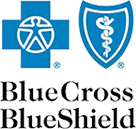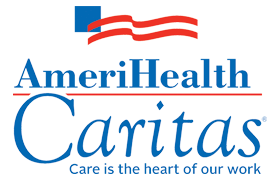Royal Life Centers has been helping people deal with heroin addiction since 2007, and we have different heroin addiction treatment programs and centers that people who are addicted to heroin can utilize to recover from the disease of addiction. We have compiled a guide to everything you need to know about heroin addiction treatment, and know that we can help you or a loved one recover from a heroin addiction issue.
What are heroin's characteristics?Heroin is an opioid drug made from morphine, a naturally occurring substance that is derived from the poppy plant. Heroin comes in various forms but is typically a white or brown powder, or a black sticky substance, and is injected in a number of different methods. Heroin usage has increased exponentially over the last several years in the US, and cities and towns all over the country are currently experiencing a heroin issue of epidemic proportions. Heroin usage is increasing among both men and women, most age groups, and all income levels and other demographics. People who use heroin typically snort, swallow, smoke, or inject the drug. Delivery methods can vary according to a person's addiction, how long they have been addicted to heroin, and the desired time frame to feel the effects of the drug. With each method of using, there are significant health risks and issues unique to the method of using the drug. Typically heroin users describe the feeling or high of the drug as being happy, relaxed, warm all over and the general sense of euphoria. How long those effects last is greatly dependent on the dosage used, how long the person has been using for, and follow-on very specific and individual factors, but all of those contribute to the deadly pull of heroin addiction. Heroin addicts constantly describe chasing that first high, and it is that chase that is the seed from which a dangerous, harmful, and challenging addiction stems from. |
More alarming than the overall increase in heroin addiction across the board is that largest increases in heroin addiction rates have occurred in demographics with historically low usage rates. According to the CDC, the largest increases in heroin addiction rates are occurring in groups that used to have the lowest rates of addiction. Heroin addiction rates are trebling in the following demographics- Women, people with higher average incomes, and people who have private health insurance. As heroin rates are increasing, so too, unfortunately, have heroin overdoses.
Drug overdoses recently surpassed all other types of injuries, as the leading cause of injury-related deaths in the United States. All of these drug overdose deaths could have been avoided with proper medical and addiction treatment intervention. With nearly 44,000 people dying yearly from drug overdoses, the impact of heroin and opiate addiction is significant. This heroin epidemic is affecting people and families in all types of communities and social settings, and is no longer a problem limited to one specific area or social group. Over the past extended years, overdose death has been rising on in over half of all US States, and the problem is exacerbated by prescription pain pill addictions as well. Many people find themselves using heroin after becoming initially hooked on prescription pain pills.
Health Consequences of Long Or Short Term Heroin AddictionPeople who use heroin for whatever length of time, whether a person has been addicted to heroin for a short period of time or using for an extended period of time, there are a number of significant health risks associated with and directly caused by using heroin. Some of the health consequences of using heroin are:
|
Heroin addiction is can be a debilitating and life-threatening illness to deal with, but fortunately there is hope for people who are struggling with a heroin addiction problem. There is no such thing as a "functional heroin addict" and not addressing the issue can have severe implications on a person's mental, physical, and emotional well being. Royal Life Centers has holistic, medically sound, and proven heroin addiction programs and centers in place to help you or a loved one.
Typically heroin addiction treatment starts with a medically supervised detox, and from some of the deeper rooted issues are dealt with. The effects of heroin are more than just the initial physical addiction, and the physical cravings and mental pull of heroin can last far longer than the initial detox process, which is why follow-on care is so integral for treating an addiction to heroin.









